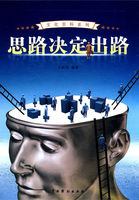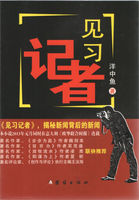CLAUDE FROLLO, holding the first printed book he had seen in one hand, and pointing with the other to the gigantic mass of Notre Dame, dark against the sunset, prophesied "CECI TUERA CELA." One might to-day paraphrase the sentence which Victor Hugo put into his archdeacon's mouth, and pointing to the elaborately appointed dinner-tables of our generation, assert that the Dinner was killing the Drama.
New York undoubtedly possesses at this moment more and better constructed theatres, in proportion to its population, than any other city on the globe, and, with the single exception of Paris, more money is probably spent at the theatre by our people than in any other metropolis. Yet curiously enough, each decade, each season widens the breach between our discriminating public and the stage. The theatre, instead of keeping abreast with the intellectual movement of our country, has for the last thirty years been slowly but steadily declining, until at this moment there is hardly a company playing in legitimate comedy, tragedy, or the classic masterpieces of our language.
In spite of the fact that we are a nation in full literary production, boasting authors who rank with the greatest of other countries, there is hardly one poet or prose-writer to- day, of recognized ability, who works for the stage, nor can we count more than one or two high-class comedies or lyric dramas of American origin.
It is not my intention here to criticise the contemporary stage, although the condition of the drama in America is so unique and so different from its situation in other countries that it might well attract the attention of inquiring minds; but rather to glance at the social causes which have produced this curious state of affairs, and the strained relations existing between our elite (here the word is used in its widest and most elevated sense) and our stage.
There can be little doubt that the deterioration in the class of plays produced at our theatres has been brought about by changes in our social conditions. The pernicious "star" system, the difficulty of keeping stock companies together, the rarity of histrionic ability among Americans are explanations which have at different times been offered to account for these phenomena. Foremost, however, among the causes should be placed an exceedingly simple and prosaic fact which seems to have escaped notice. I refer to the displacement of the dinner hour, and the ceremony now surrounding that meal.
Forty years ago dinner was still a simple affair, taken at hours varying from three to five o'clock, and uniting few but the members of a family, holidays and fetes being the rare occasions when guests were asked. There was probably not a hotel in this country at that time where a dinner was served later than three o'clock, and Delmonico's, newly installed in Mr. Moses Grinnell's house, corner of Fourteenth Street and Fifth Avenue, was the only establishment of its kind in America, and the one restaurant in New York where ladies could be taken to dine. In those tranquil days when dinner parties were few and dances a rarity, theatre-going was the one ripple on the quiet stream of home life. Wallack's, at the corner of Thirteenth Street and Broadway, Booth's in Twenty-third Street, and Fechter's in Fourteenth Street were the homes of good comedy and high-class tragedy.
Along about 1870 the more aristocratically-minded New Yorkers took to dining at six or six-thirty o'clock; since then each decade has seen the dinner recede further into the night, until it is a common occurrence now to sit down to that repast at eight or even nine o'clock. Not only has the hour changed, but the meal itself has undergone a radical transformation, in keeping with the general increase of luxurious living, becoming a serious although hurried function. In consequence, to go to the theatre and be present at the rising of the curtain means, for the majority possessing sufficient means to go often to the play and culture enough to be discriminating, the disarrangement of the entire machinery of a household as well as the habits of its inmates.
In addition to this, dozens of sumptuous establishments have sprung up where the pleasure of eating is supplemented by allurements to the eye and ear. Fine orchestras play nightly, the air is laden with the perfume of flowers, a scenic perspective of palm garden and marble corridor flatters the senses. The temptation, to a man wearied by a day of business or sport, to abandon the idea of going to a theatre, and linger instead over his cigar amid these attractive surroundings, is almost irresistible.
If, however, tempted by some success, he hurries his guests away from their meal, they are in no condition to appreciate a serious performance. The pressure has been too high all day for the overworked man and his ENERVEE wife to desire any but the lightest tomfoolery in an entertainment. People engaged in the lethargic process of digestion are not good critics of either elevated poetry or delicate interpretation, and in consequence crave amusement rather than a mental stimulant.
Managers were quick to perceive that their productions were no longer taken seriously, and that it was a waste of time and money to offer high-class entertainments to audiences whom any nonsense would attract. When a play like THE SWELL MISS FITZWELL will pack a New York house for months, and then float a company on the high tide of success across the continent, it would be folly to produce anything better. New York influences the taste of the country; it is in New York really that the standard has been lowered.
In answer to these remarks, the question will doubtless be raised, "Are not the influences which it is asserted are killing the drama in America at work in England or on the Continent, where people also dine late and well?"















